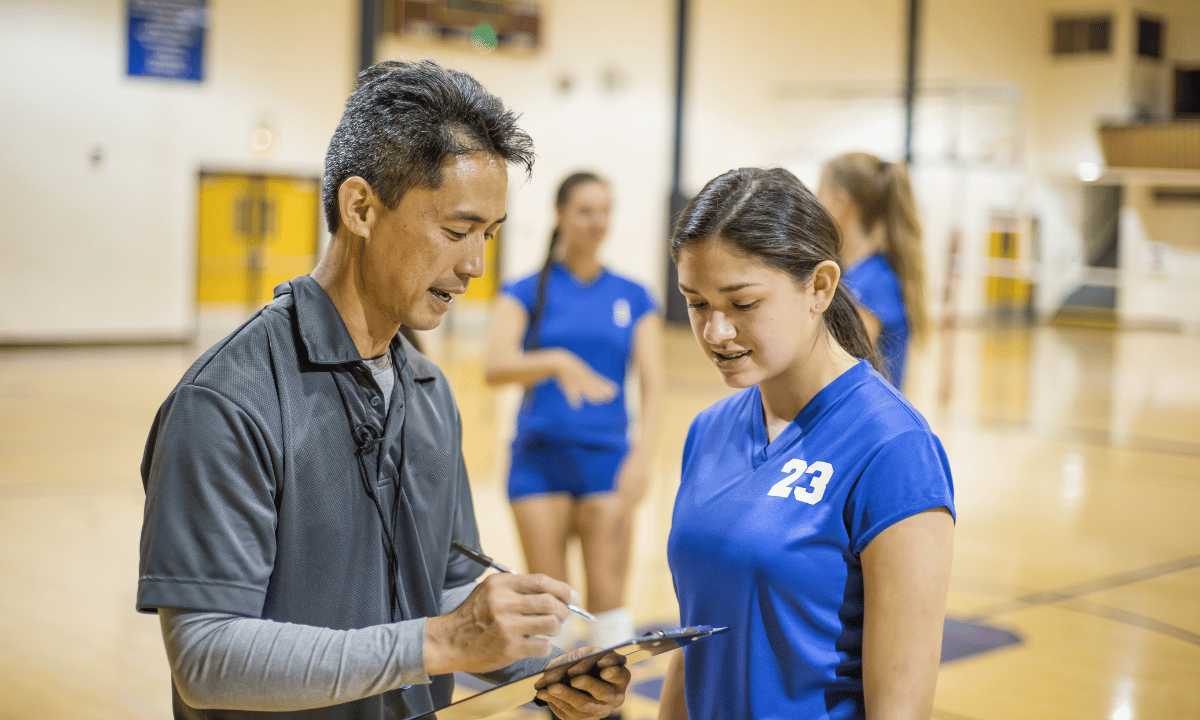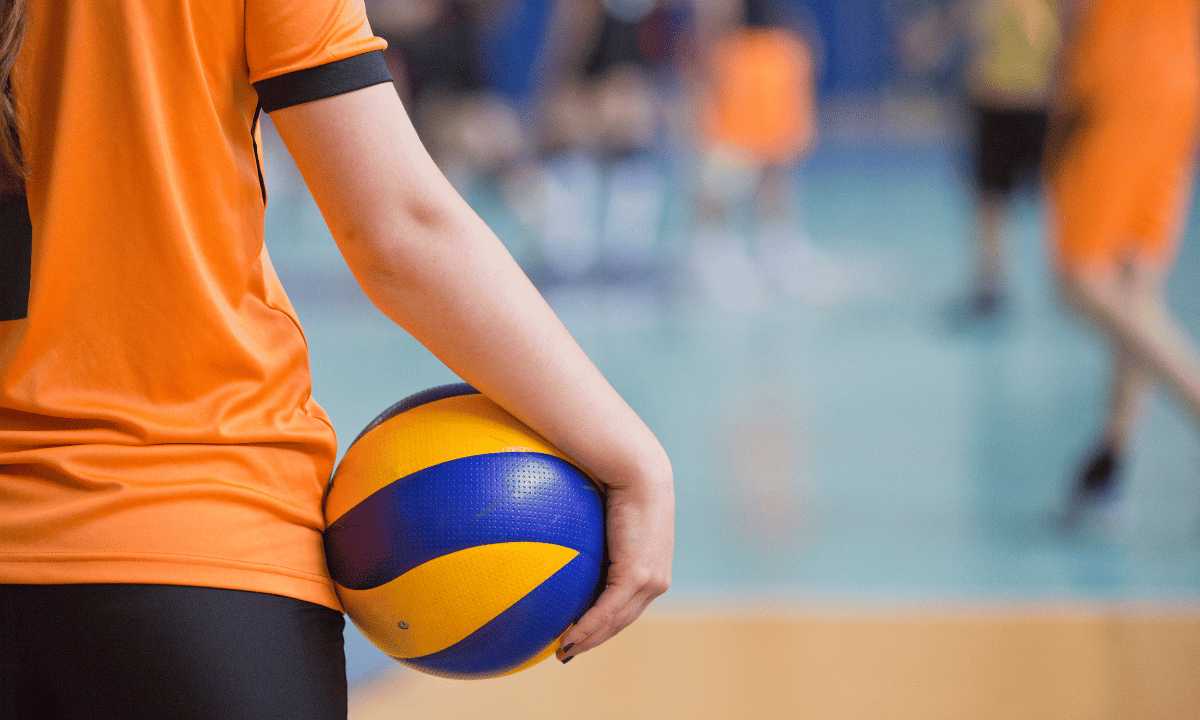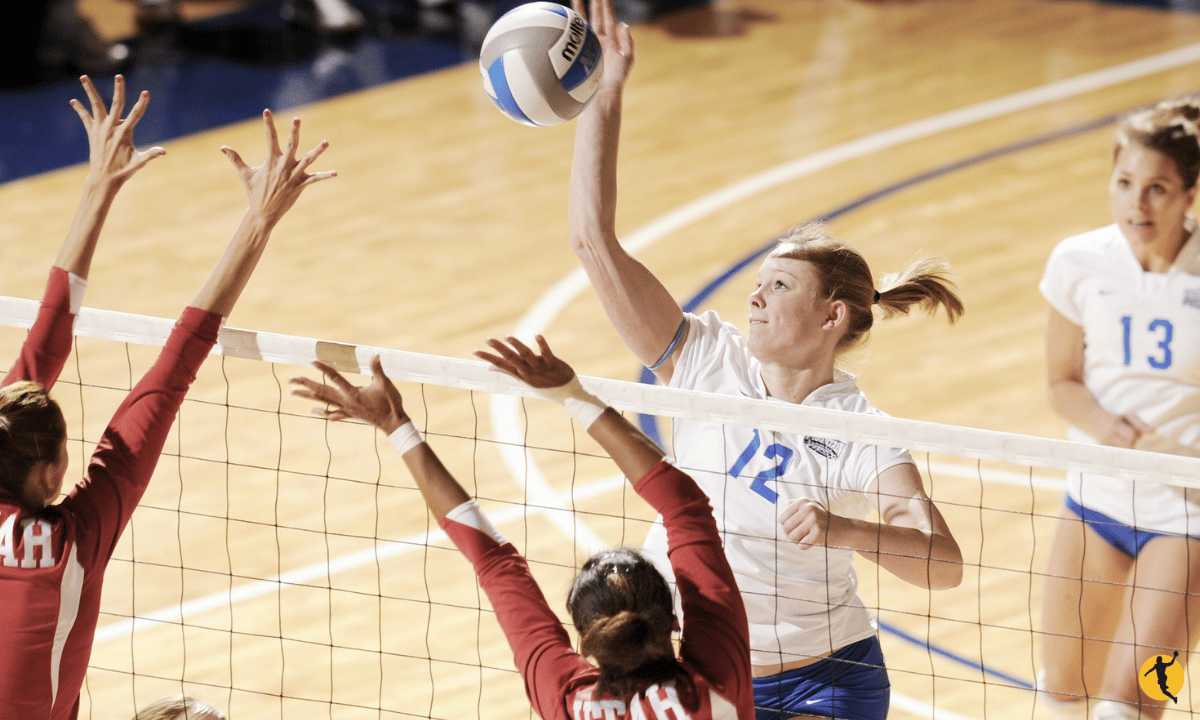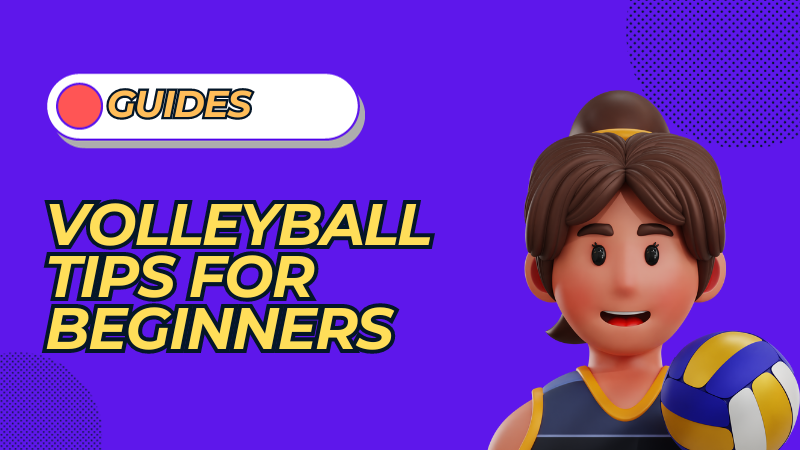The thrill of a powerful serve, the excitement of a well-executed spike, the satisfaction of a game-winning block – these are the moments that make volleyball a captivating sport. However, the journey to mastery can be filled with challenges and frustrations for beginners. How do you set the ball accurately? What’s the secret to a successful hit? Even the basics of passing and serving can feel overwhelming when you’re new to the game.
Did you know that the Soviet Union men’s national volleyball team holds the record for the most consecutive wins, with 13 victories between 1970 and 1974? It’s a testament to what solid fundamentals and practice can achieve.
Stay with me as we explore essential volleyball tips for beginners. Together, we’ll break down the core techniques, from serving to setting, and provide actionable guidance to set you on the path to becoming a confident and skilled player. Let’s make your volleyball journey enjoyable and rewarding!
Volleyball Tips for Beginners
Starting your journey in volleyball can be exhilarating, but mastering the basics requires understanding some fundamental principles. This section will explore the building blocks that every beginner should focus on. From warming up to honing your serving skills, these tips are tailored to pave the way for an exciting and fulfilling volleyball experience.
Make Sure You Warm Up
Warming up is an essential first step before any physical activity; volleyball is no exception. Engaging in stretches, light jogging, and dynamic exercises prepares your body for the rigorous demands of the game. A proper warm-up increases blood flow to muscles, enhances flexibility, and significantly reduces the risk of injuries. Allocate 10 to 15 minutes to warm up properly, and you’ll find yourself more agile and responsive on the court.
Stay Hydrated
Volleyball matches can be intense and physically demanding, especially during prolonged play. Staying hydrated is crucial to maintaining optimal performance. Drink water regularly before, during, and after your game. Dehydration can lead to fatigue, reduced coordination, and even cramping. Having a water bottle handy and taking sips between plays helps maintain energy levels and focus throughout the match.
Passing Accuracy Practice
Passing is a fundamental skill in volleyball; practicing it accurately is vital for beginners. Work on controlling the ball with the correct part of your arms, maintaining the right posture, and using your legs to guide the ball. Engaging in drills focusing on reaching specific targets can help develop precision and confidence. Remember, passing is not just about power but control and timing.
Also, Read: Can You Wear Basketball Shoes for Volleyball?
Accurately Serve
Serving sets the tone for each rally in volleyball. Beginners should focus on mastering the basic overhand and underhand serves before moving on to more advanced techniques. Consistency and accuracy are key. Practice your stance, grip, and swing to create a powerful and controlled serve. A well-executed service can be a significant advantage, even at the beginner level.
Accurate Setting Practice
Setting is the art of accurately positioning the ball for a teammate to attack. It’s a skill that requires soft hands, precise timing, and spatial awareness. Practice with drills that emphasize hand position, wrist flexibility, and visual tracking of the ball. Work closely with teammates to understand their preferences for hitting, and strive to provide sets consistent and adaptable to the game’s flow.
Improve Your Hitting Accuracy

Hitting accuracy in volleyball can turn a good player into a great one. The goal is not just power but precision, directing the ball where you intend it to go. Start with the basics: proper footwork, timing, and arm swing. Understand the different hitting techniques, such as cross-court and line shots. Utilize drills that challenge your ability to hit specific targets on the court. Remember, practice, observation, and consistent feedback will gradually sharpen your accuracy, making you an essential asset to your team.
Be Honest About Your Skill Level
Acknowledging your current skill level is essential in your development as a volleyball player. Trying to perform beyond your abilities can lead to frustration and even injury. Focus on mastering fundamental skills before attempting more advanced techniques. Communicate openly with your coach and teammates about your strengths and areas for improvement. Progress is a journey, and being honest with yourself allows for more targeted and satisfying growth in the game.
Get Familiar with the Beach
Understanding the unique environment is crucial if you’re venturing into beach volleyball. The sandy surface requires different movement and ball control techniques compared to indoor volleyball. Spend time getting accustomed to the feel of the sand underfoot and how it affects your mobility and stability. Practicing on the beach will help you adapt to wind and sunlight, essential skills for competitive beach volleyball.
Wear The Correct Gear
Wearing the right gear can greatly impact your comfort and performance on the court. Choose shoes with good grip and support to enhance your movement. Select clothing that allows flexibility and wicks away sweat, such as moisture-wicking fabrics. Knee pads and other protective gear can prevent injuries. Investing in quality gear that fits you well boosts your confidence and enables you to play your best.
Also, Read: How Many Players Are on a Volleyball Court?
Bring Every Gear You Need – And Maybe Some Extra
Preparation is key to a successful game or practice session. Always have all the required equipment with you and maybe even some extras. This includes extra socks, a change of clothes, water bottles, and even extra volleyballs for practice. Having backup supplies ensures that you won’t be caught off guard by unexpected situations, allowing you to focus solely on the game.
Be Sure to Listen to Your Coach

Listening to your coach is paramount to your growth as a volleyball player. Your coach has the experience and insights to see your strengths and weaknesses. Their advice on techniques, strategies, and the game’s mental aspects can significantly enhance your performance. Being open to feedback, following through with their guidance, and asking questions can foster a healthy player-coach relationship. This collaboration will undoubtedly lead to your development both on and off the court.
Teamwork Is Key
Individual skills are vital in volleyball, but teamwork can make or break a game. It is essential to understand your role and how it fits into the team’s overall strategy. Practice working together during drills, support each other during games, and communicate openly. Teamwork goes beyond gameplay; it includes building trust, respecting each other’s abilities, and striving for a common goal. A cohesive team that works well together can overcome even the strongest opponents.
Communicate On The Court
Communication is the lifeline of effective volleyball play. Verbal cues, eye contact, and hand signals all keep everyone on the same page. Clear communication can differentiate between a win and a loss, whether calling for a ball, signaling a play, or offering encouragement. It’s more than just talking; it’s about understanding each other’s preferences and tendencies and building a shared language that leads to seamless gameplay.
Learning to Swing Your Arm with a High Contact Point
Swinging your arm with a high contact point in volleyball is a skill that can greatly improve your hitting power and accuracy. This technique involves contacting the ball at the peak of your jump and using your entire body, from legs to arms, to create force. Practice this by focusing on proper jumping, timing, and arm extension. Coaches often provide drills specifically for this purpose. Perfecting a high-contact point swing can lead to more effective hits, making you a formidable force on the court.
Also, Read: How to Get Better at Volleyball
Don’t Move While Serving the Volleyball
When serving in volleyball, stability is essential. Moving or shifting your feet during a serve can disrupt your balance and affect the accuracy and power of the serve. Practice standing firm with a solid foundation, and focus on the consistency of your arm swing and contact point. Whether you’re performing an underhand or overhand serve, keeping your body stable will increase your chances of successfully placing the serve where you intend.
Always think ‘high, middle’ when passing.
In the exciting game of volleyball, one of the key principles for passing is always to think ‘high, middle.’ This refers to the trajectory and position of the ball as it is passed. Passing high gives your teammate plenty of time to get under the ball and make a good play. Aiming for the middle ensures that the ball is easily accessible to the setter, thereby making the play run smoothly.
Practicing this principle helps in developing a keen sense of coordination and anticipation. Even if you don’t play in the front row, understanding high middle passing is essential to become a better player on the volleyball court. Remember, volleyball is played with precision, and every pass counts towards a score point, so make sure to get your pass-the-ball skills on point.
The setting shouldn’t be complicated
Setting is a vital skill in volleyball, as the bridge between a pass and a hit. However, one common misconception is that the setting needs to be complicated. In truth, the setting should be simple and consistent. The goal is to accurately get the ball to the hitter, not confuse the opposing team with complex techniques.
Working on basic skills, such as proper hand positioning and footwork, can make setting more effective. Learning to set the ball with a consistent tempo and height can greatly improve your volleyball game. Remember, the best volleyball setters make the task look effortless and deliver the ball precisely where it needs to go.
Don’t be afraid to turn your back to the net.

Turning your back to the net may seem counterintuitive, but in certain situations, it’s an essential skill to master. When playing close to the net, sometimes the only way to save a ball is to turn your back to the net and play it over your shoulder. This maneuver requires practice and confidence but can be a game-changing move.
Training with drills focusing on this technique can help players become more comfortable. The more a player practices, the more natural it becomes, leading to more successful plays. This approach exemplifies the flexibility and adaptability required in volleyball, where quick decisions often make a difference.
Never give up on a ball.
In volleyball, a relentless attitude can set you apart from the crowd. No matter how difficult it may seem to reach a ball, the attitude of never giving up defines a great player. This doesn’t mean recklessly diving for every ball but giving your best effort and using proper techniques to make a play.
This attitude builds resilience and determination in a player. It also motivates teammates to do the same. The belief that every ball is playable instills a sense of unity and encourages a fighting spirit within the volleyball team. Even if it seems like the ball is out of reach, pushing the limits can lead to surprising and often game-saving plays.
Play with mental tenacity
Playing with mental tenacity means having the mental toughness to overcome challenges, stay focused, and perform under pressure. In the intense game of volleyball, physical skill alone is not enough. The ability to stay calm, maintain concentration, and execute plays even when the odds are against you is paramount.
Mental tenacity can be nurtured through practice, meditation, and even mental coaching. Understanding that mistakes will happen and learning from them rather than dwelling on them is a sign of a mentally strong player. Remember, volleyball is as much a mental game as it is physical. Cultivating mental strength can elevate your performance on the court and make you a better player overall.
Encourage your teammates
Team encouragement is a foundational aspect of volleyball that can’t be ignored. This isn’t just about cheering from the sidelines; it’s about communicating actively and positively with teammates during the game. It’s about lifting each other up after a missed point and celebrating together after a well-earned point.
When teammates feel encouraged and supported, they play more confidently and enthusiastically. The camaraderie created through encouragement often translates into better coordination and a more cohesive team effort on the court. The simple act of clapping for a great play, giving a high-five, or offering words of encouragement can transform the whole team’s performance and morale.
Also, Read: How Much Do Professional Volleyball Players Make?
Utilize all three hits.
In volleyball, a team is allowed three hits to return the ball to the other side. Using all three hits strategically signifies a mature and skillful team. Beginners often rush to get the ball over the net, but utilizing all three hits allows for more controlled and tactical plays.
The first hit is typically used to control the opponent’s serve or attack, the second hit for setting up the play, and the third hit to attack or strategically place the ball. This approach allows for a more calculated game where players can work together to outsmart the opposing team. Practice and coordination are key to implementing this tactic effectively.
Don’t set the ball too close to the net
Setting the ball too close to the net can lead to various problems in a volleyball game. It can cause your hitters to collide with the net, commit fouls, or limit their hitting options. An ideal set allows hitters to approach the ball and make a strong, well-timed attack without obstruction from the net.
Practicing the right distance and height for sets is essential in volleyball training. Understanding different hitters’ preferences and adjusting sets accordingly can greatly enhance the team’s ability to score points. Communication between setters and hitters is crucial for this, ensuring that every set maximizes the chances of a successful attack.
Avoid passing the ball too close to the net

Just like setting, passing the ball too close to the net can limit your team’s options and lead to errors. This is especially crucial in the first pass after a serve, where control and precision set the tone for the play.
When passes are too close to the net, they become difficult to set and can lead to missed opportunities for attack. Practicing control in passing, focusing on getting the ball to a target area away from the net, allows the team to develop a more fluid and effective offense. It’s a skill that requires practice and focus but pays off immensely in the competitive arena.
When blocking, don’t jump straight up.
Blocking is an essential defensive technique in volleyball, but it’s more complex than jumping straight up to stop the ball. An effective block requires timing, positioning, and the understanding that you’re not just trying to block the ball but direct it.
Instead of jumping straight up, a player should jump slightly into the court, aiming to press the hands over the net and into the opponent’s side. This technique increases the chances of blocking the ball and controlling where it goes. Proper blocking can disrupt the opponents’ attack, force them into errors, and even score points directly.
Training to perfect this technique, understanding when to jump, and how to position the hands and body can be game-changers. It’s one of those skills that may seem minor but significantly impacts the overall defense of a volleyball team.
Position yourself defensively
Defensive positioning is essential to volleyball, determining how well a team can respond to offensive plays. Understanding where the ball might land allows a player to position themselves strategically. This involves reading the opponent’s intentions and maintaining a balanced and agile stance. Angled towards the center of the court, with knees slightly bent and hands ready to react, can mean the difference between a successful block and a lost point.
Good defensive positioning isn’t just about physical readiness; it also requires a mental understanding of the game. Recognizing the opposing team’s strategies and the likely trajectory of the ball helps players be in the right place at the right time. Regular practice, focusing on footwork and defensive drills, will enhance this crucial aspect of the game.
Always be ready for the ball
In volleyball, every player must be prepared to act at any given moment. Always being ready for the ball means maintaining a state of alertness, with eyes on the ball, body in a ready position, and mind anticipating the next move. It’s more than receiving or hitting the ball; it’s about supporting teammates, making blocks, and adapting to rapidly changing situations.
Being always ready for the ball is a mindset that requires continuous focus and engagement. Drills simulating game-like conditions and encouraging quick reactions can foster this vital skill. By instilling this mentality, players can contribute effectively to every play, regardless of their position or the game’s current state. It’s a habit that transforms good players into great ones and contributes significantly to the team’s success.
Conclusion
Volleyball is a complex and exciting sport that requires a combination of skill, strategy, and teamwork. From understanding the importance of defensive positioning to always being ready for the ball, players must develop a wide range of abilities. Defensive awareness, anticipating plays, proper positioning, and mental readiness form the foundation of successful play.
Success in volleyball also stems from a deep connection with teammates and a clear understanding of individual roles. Adhering to positioning, readiness, and tactical awareness can elevate a player’s game, providing more control and enjoyment on the court. These insights offer a pathway to individual growth and team achievement, emphasizing the multifaceted nature of the sport.

